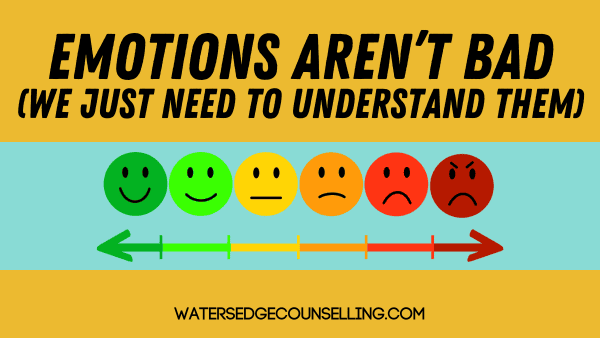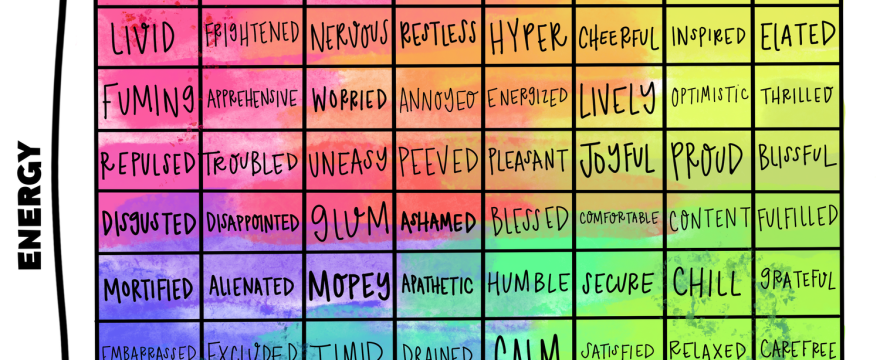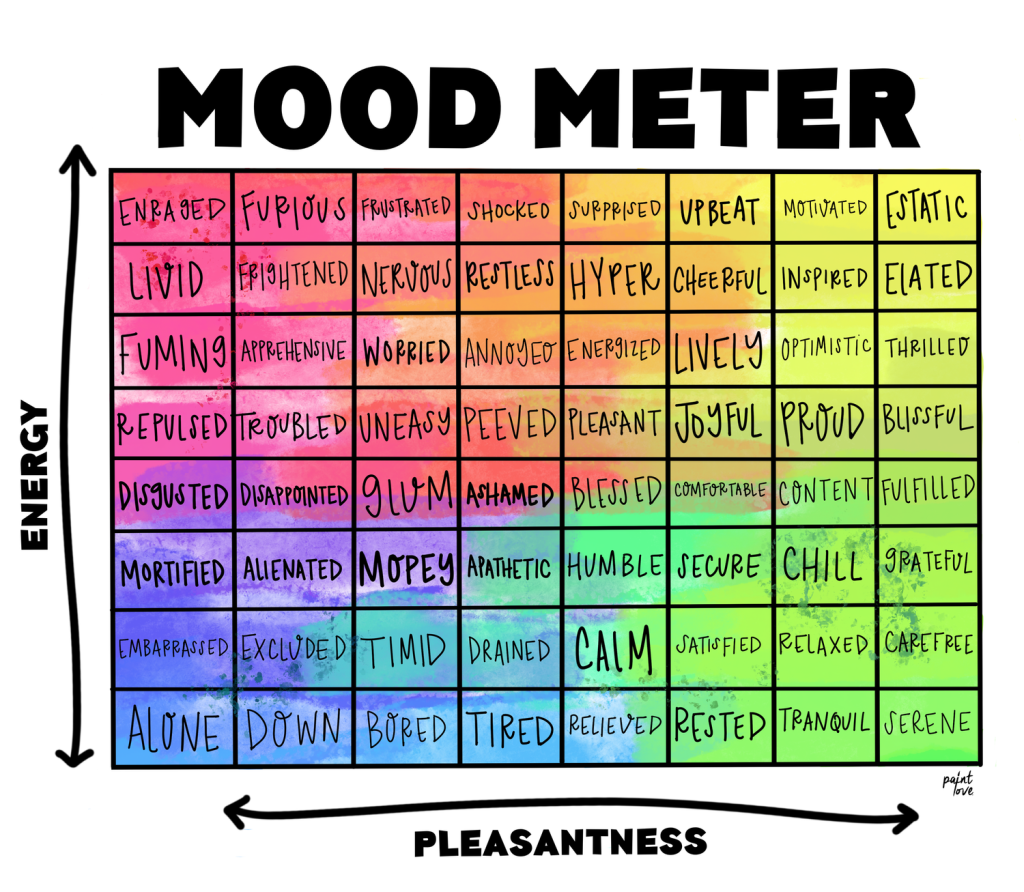
It’s funny how we think some emotions are ‘good’ and others are ‘bad’.
Feelings of happiness, relaxation and peace are often seen as ‘good’. It’s our go-to answer when someone says, ‘How was your day?’. But feelings of lethargy, depression, anger or frustration are often perceived as ‘bad’ – so we don’t tell people about them. Or, we suppress them and try to will ourselves to go back into the ‘good’ zone.
There are no good and bad emotions
Every emotion – and as we’d say to kids, every big feeling, is telling us something important. And if we’re honest, we’re never just feeling one thing, are we? We feel all sorts of interesting, uncomfortable, wonderful, annoying things, and sometimes all at once!
When we realise that our worth and our identity isn’t found in a single emotion, we give ourselves permission to feel ALL the feelings. Then, we can ask what that feeling is telling our mind and body so we can act accordingly.
So if you are feeling frustrated and angry, instead of assuming you are a ‘bad’ person, you can ask what caused those feelings in the first place.
Maybe you feel ignored, or unsupported. Perhaps you saw something unjust happen, or you feel out of control? Before the anger takes over your behaviour, you can ask these questions and do something about it. Or, if you can’t change the situation, you can use the energy and adrenaline for something productive and move the feelings through your body.
The Mood Meter
The Yale Center for Emotional Intelligence created a great tool called the Mood Meter – it divides our emotions into the four zones of regulation (blue, green, yellow and red).
Each zone represents different feelings and energy levels. We love the Mood Meter, because it lists a ton of feelings we often forget about. And, it shows us what zone we are currently in so we can respond and take care of ourselves! And because feelings can be mixed, the colour scale shows us what zones we are between, so we can better understand ourselves (or our kids).
Instead of seeing the ‘red’ zone as bad, because it is high-energy, and has emotions like enraged, uneasy or nervous, we can understand that our bodies are on edge for a reason, and use the emotions to do something equally as productive.
In a video from Yale which is made for teachers, it explains that being in the Red Zone is a great way to practice advocacy, or do high-intensity sports or activities. Where as the blue zone, which is low energy and carries emotions like ‘apathetic’ and ‘glum’ helps us to be empathetic and have compassion on other people.

Take a look at the Mood Meter, drawn by GoPaintLove.org and watch the video from the Yale Center for Emotional Intelligence. Next time you feel something ‘bad’ remember – there are no bad emotions, your body and mind is just telling you that something has changed, and you have the chance to understand why.
Do you want to understand your feelings and emotions?
Call Duncan on 0434 331 243 or Rachel on 0442177193 to see how we can best help you, or press book now and make an appointment with Duncan.


Leave a Reply